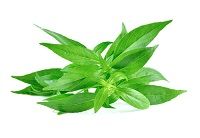Article
Medicinal Plant Helps Fatigue in MS
Author(s):
Andrographis paniculata, available as an herbal medicine, helped patients with MS in a double-blind placebo-controlled study.

A medicinal plant may help patients with multiple sclerosis.
A recent study showed that Andrographis paniculata (A. paniculata) reduces fatigue in patients with relapsing-remitting MS (RRMS) who are also receiving interferon beta treatment, compared those receiving only interferon beta or a placebo. The study was conducted by JC Bertoglio of the Institute of Medicine at the Austral University in Chile, and colleagues, and was published in BMC Neurology on May 23, 2016.
A.paniculata (photo) is sold as an herbal remedy. Researchers wanted to learn more about how it affects the relapse rate and fatigue in patients with RRMS who are receiving interferon beta. In order to investigate, they conducted a double-blind, placebo-controlled trial over 12 months. Only 25 patients were enrolled, and of those, 22 were ultimately included in the analysis, so it was a small study. Although small, the results of this study suggest that further research, with a larger sample size, over a longer period of time, is warranted.
The primary outcome was whether or not A.panicula affected fatigue. The researchers used the Fatigue Severity Score (FSS), which consists of a self-rating questionnaire. The researchers report, “Patients treated with A.paniculata showed a significant reduction in the FSS score compared to the placebo, equivalent to a 44% reduction at 12 months.”
The mechanism by which A.paniculata reduces fatigue is unknown. However, given the positive results of this study, more research should be conducted, as fatigue is one of the more debilitating symptoms reported by RRMS patients. The researchers note, “several pharmacological treatments available for fatigue in people with MS have failed to show clinical efficacy.” A.paniculata was well-tolerated by the participants in this study and the apparent reduction in fatigue makes it a possible pharmacological solution.





